BIOGRAPHIES OF SPEAKERS AT PROGRESS IN SOLAR ARCHITECTURE
20th June 2025
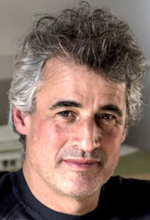
Alex Michaelis was born in Paris. He studied architecture at the AA, then at Oxford Polytechnic. He followed similarly in the footsteps of his father – Dominic Michaelis, a pioneering and visionary Solar, and Eco-Architect. Alex now champions sustainable architecture through his influence at his studio – Michaelis Boyd Associates (michaelisboyd.com) which is renowned worldwide for their creative, environmentally conscious design and building techniques. Leaf House is Alexs’ latest passion project in the Cotswolds which truly exemplifies a zero-carbon, landscape-integrated family dwelling which he completed in 2024. Leaf House is a key project for the studio as it shifts its focus to increasingly sustainable architectural solutions using solar energy to power the entire house and neighbouring barn. Alex is working to fuse nature into all the architectural projects Michaelis Boyd is currently working on and is using solar as a key connection between the climates inside and outside their buildings in numerous innovative approaches that he will touch on, in his talk.
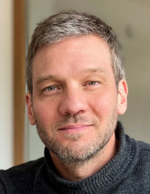
Charlie Luxton is passionate about the environment and communicating about sustainable architecture and design. He set up Charlie Luxton Design in 2005 and since then the practice has followed its core principles of creating beautiful, sustainable architecture fit for the 21st century. Last year the practice won the AJ Small Projects Sustainability Award, The Daily Telegraph ‘Home of the Year’ award and a Gold medal with ‘Best in Show’ at RHS Malvern Flower Show working with Jamie Langlands on a wildlife/sustainability garden for the Wildlife Trusts. CLD are currently working on a range of projects from masterplans to one-off houses all connected by the themes of quality, beauty and sustainability. A current project that captures this ambition is the headquarters for an ethical investment company that is seeking carbon neutrality within its site via Passivhaus and circular economy principles, alongside careful management of the 22 acre site to encourage carbon sequestration and bio-diversity. The building will also be used for an education programme for local schools in finance and sustainability. Last year Charlie Luxton Design completed a community led project with Hook Norton Community Land Trust for 12 homes, a village work hub and rental bedrooms. This included the country’s smallest micro-grid and largest community run car club. The project sought to answer many of the challenges facing rural communities. Charlie has combined his design work with writing and presenting television programmes for the last twenty years and regularly gives talks and presentations to a wide range of audiences about all aspects of the built environment and sustainability.
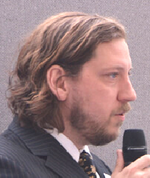
Chris Jardine is an Honorary Research Associate at Oxford University’s Environmental Change Institute. Chris ran some of the earliest comparative tests of PV systems in the UK in the early 2000s. These trials were instrumental in proving that solar worked under our cloudy skies, and laid down many of the principles of best-practice solar design. Chris is now recognised as one of the UK’s foremost experts in the performance of solar PV and is the author of prize-winning papers on the subject, as well as leading publications such as “PV in the UK” and “Power from the People”. He also champions community-led energy projects. Chris has also spent 18 years as Director of Joju Solar – an award winning PV, battery and EV chargepoint installation company. Chris brings a unique mix of academic insight and practical experience at the forefront of the UK solar industry.
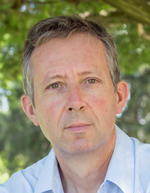
Ricardo Rüther is a Full Professor at Universidade Federal de Santa Catarina in Florianopolis-Brazil, in the field of solar photovoltaics, solar irradiation resource assessment, electrochemical storage, electromobility, agriphotovoltaics and green hydrogen. He completed a BE with honours (1989) and a M.Sc. (1991) degree in Metallurgy and Materials Science at Universidade Federal do Rio Grande do Sul in Brazil, and obtained his Ph.D. from the University of Western Australia in Electrical & Electronic Engineering in 1995. He was an Alexander von Humboldt post-doctoral research fellow at the Fraunhofer Institute for Solar Energy Systems in Germany (1995-1996), and was tenured at Universidade Federal de Santa Catarina in 2000. Prof. Rüther is also a guest lecturer at the Master of Science Solar Energy Engineering course at the University of Freiburg – Germany. He is the current President of ABENS, the Brazilian Section of ISES, and a member of the Board of Directors of ISES.

Bruce Cross is the founder of EETS / GB-Sol. He studied Mechanical Engineering at Imperial College and has a Masters in Automotive Photovoltaics from Cardiff University. He is a fellow of the institution of Mechanical Engineers, and has served on many trade, standards, and governmental committees. After working in industrial development engineering, he set up the UK test house for Solar Systems in 1980 and built renewable test centres in many undeveloped countries for the UNDP in the 90s. He led the development of roof integration for PV at Cardiff and built many of the landmark PV installations including the Oxford ecohouse. True roof integration requires custom sizes and shapes of PV laminates, and so he set up a PV manufacturing facility in Cardiff which became the GB-Sol of today. Collaboration in several European PV research groups led to co-ordinating the PV-Cool build project which established the design principles for the thermal integration of PV into the building envelope. There were several collaborations with roofing and PV partners to develop roof tiles and slates which incorporated PV in an aesthetic manner. Eventually this led to the solar slate which GB-Sol has continued to improve and which has been utilised on many conservation and listed buildings.

Mark Candlish is MD of GB-Energy UK. Hejoined the energy industry in 1990. In 2000 Mark was the commercial director for Slough Heat & Power, the UK’s first conversion of a coal fired station to biomass. At Renewable Energy Systems he created RES Heat and Power, acquiring the country’s leading installers of ground source heat pumps, biomass heating, solar PV and solar thermal, serving developments that needed renewable energy under the Merton rule. He also served as a director of the Renewable Energy Association in a voluntary capacity for nine years and chaired the organisation for three years, during which time they successfully lobbied alongside NGOs like Greenpeace for the introduction of the feed in tariffs. In 2010 Mark founded GB Renewables. The company developed and built biomass CHP power stations and 14 large scale solar farms, including the first 50MW solar farm in the UK. In 2020 GB Renewables acquired GB-Sol, a company that Mark admired and had been working closely with for many years. Today, GB-Sol offers a range of solar roofing products that are unmatched in terms of their proven track record, reliability and elegance.
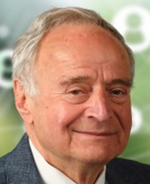
George Goudsmit is a solar pioneer, entrepreneur and founder of AES Solar. In 1989 George foresaw the growth in solar power when he moved to Scotland and took over Weatherwise, a small heating company with a sideline in solar thermal manufacture founded by the Findhorn Foundation in 1979. The solar market was dominated by hot water systems then. In 1995 AES Solar provided the solar hot water system for the first UK building integrated, grid-connected PV roof on the Oxford Ecohouse. Since then the company has provided PV and solar thermal systems for thousands of buildings ranging from remote cottages to the Scottish parliament and Edinburgh and Balmoral Castles as well as large scale solar electric arrays. They have won many accolades including the 2022 Queen’s Awards for Enterprise and the Sustainable Development 2023 National Energy Efficiency Awards. In 2021 George was awarded a Lifetime Achievement Award at the Solar and Storage Awards in recognition of the huge role he has played in supporting and promoting many organisations and government in the decadal development of solar in the UK including as a board member of the Solar Trade Association (now Solar energy UK) and a founding member of the Scottish Solar Energy Group. In 2024 he stepped back from day-to-day management at AES Solar and is now expanding his portfolio of interests in the wider renewable energy field, PLANT-e being his most current involvement.
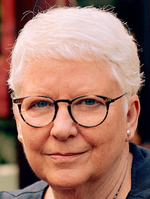
Sue Roaf is Emeritus Professor of Architectural Engineering at Heriot Watt University, Honorary Professor at Deakin University, Melbourne and Honorary Professor at the University of Queensland. An award winning author, architect, teacher and solar energy pioneer. She spent ten years in Iran and Iraq, on archaeological excavations, nomadic migrations, and researching desert technologies. Her 24 books include those on The Ice-houses of Britain, Ecohouse design, energy efficient buildings, adapting buildings and cities for climate change, sustainability indicators, adaptive and resilient thermal comfort, natural energy buildings and transforming markets in the built environment. An ex-Oxford City Councillor, ex-member of the UK’s Architects Registration Board and ex-Director of AES Solar Energy Ltd. She is Director of Ecohouse Initiative Ltd., an advisor to the Resilient Design institute in New York and has chaired and organised many conferences. She led Scottish Government programme on Adaptation in the Built Environment from 2010 to 2016, and promotes the Comfort at the Extremes movement, working recently in Antarctica and on marginalised communities in Australia researching Climate-Safe Design (see: www.comfortattheextremes.com ). She has for thirty-five years believed that for the planet to survive, humanity will need to be largely powered by solar energy.